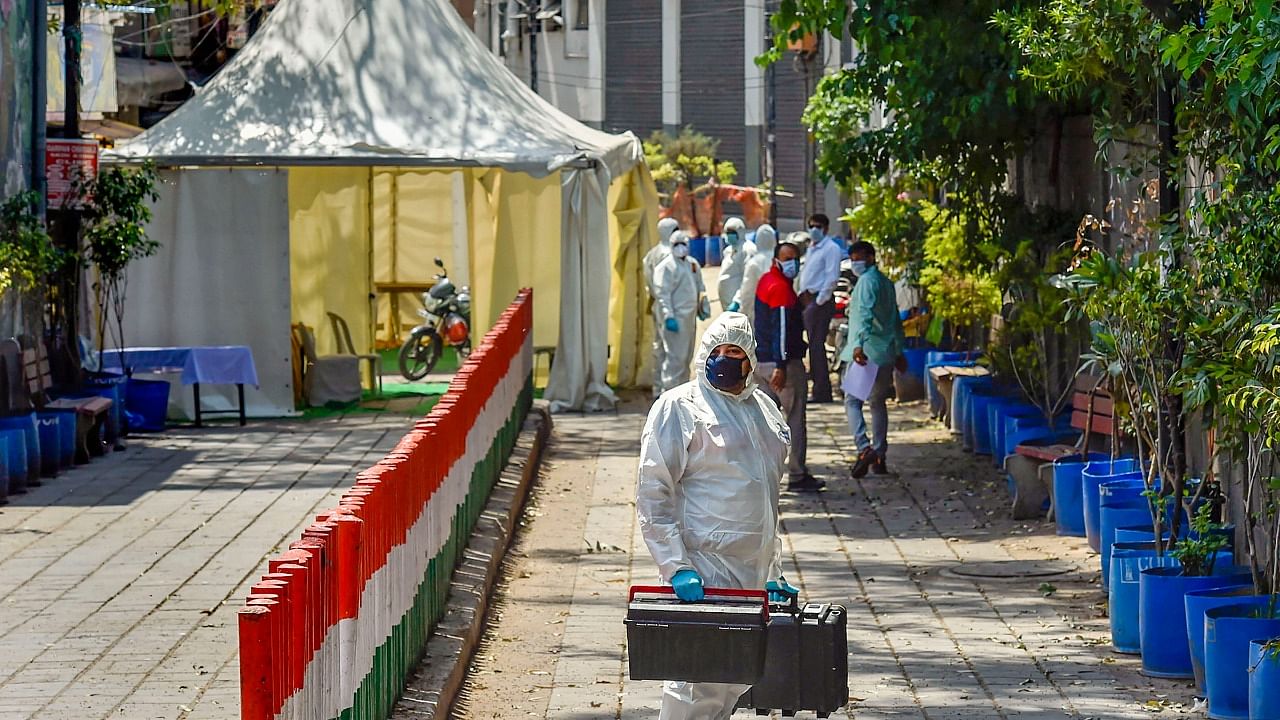
The Delhi High Court Friday asked the Centre to come with a clear stand as to what objection it has in fully re-opening the Nizamuddin Markaz, where the Tablighi Jamaat congregation was held in March 2020 amid the Covid-19 pandemic and has remained shut since then.
The court sought to know from the Centre why it was against reopening it fully daily when it was agreeable to open it during festivals.
Justice Manoj Kumar Ohri asked the counsel for the Centre to apprise the court as to what objection they have in re-opening all the floors of the building when the authorities are agreeable to open the first floor of the masjid for devotees to perform their prayers.
“If the first floor can be used for 'namaz' then other floors can also be used for it. You (Centre's counsel) please take instructions as to in case there is no objection to the opening of the first floor, what objection may be there for the opening of the remaining portion, dehors your submission that you have no objection as far as festivals are concerned. Why can't it be opened every day,” the court said.
The court was hearing an application by the Delhi Waqf Board seeking to open the mosque in view of Shab-e-Barat and Ramzan in March and April.
Senior advocate Sanjoy Ghose, representing the Delhi Waqf Board, submitted that even when the Covid-19 pandemic was at its peak, the predecessor bench had allowed 50 people to offer namaz after which a joint inspection was conducted and the mosque premises was demarcated.
He said it was a congested area and allowing all devotees on the first floor is actually creating Covid hazard “when you want all devotees to throng in one floor when seven floors are available with you. I don't understand the logic and reason of the Union of India to argue like this”.
Senior advocate Rebecca John, appearing for the managing committee of the mosque, said "there is no reason why any restriction should be placed" and "why the mosque premises should not be open when no other religious places are closed."
The Centre, in its recent affidavit, has opposed fully re-opening the Nizamuddin Markaz and stated that a few people may be allowed to offer prayers on the upcoming religious occasions.
Government counsel Rajat Nair submitted that there was no objection in allowing people to offer namaz on the first floor, as per the DDMA guidelines, but if they want all the floors to be reopened then they have an objection as it was the final relief which cannot be granted at an interim stage.
The judge said, “today both the claimants (waqf board and managing committee) are before the court and they both jointly seek reopening of the area which has been identified as the place where devotees can come and offer namaz. You also identify that from the basement till the fourth floor it is the place and there is no restriction in the numbers now, what objection is there for other floors?”
The court listed the matter for March 14 and asked the Centre's counsel to make his stand clear on that day while adding, “I want some clarity on your submissions”.
The counsel for the Delhi Waqf Board had earlier said that the mosque, which is under the lock of Delhi Police, should be opened as the Delhi Disaster Management Authority (DDMA) has now lifted all restrictions that were imposed on account of the pandemic.
Several FIRs were registered under the Epidemic Diseases Act, the Disaster Management Act, the Foreigners Act and various provisions of the penal code in connection with the Tablighi Jamaat event held at the Nizamuddin Markaz and the subsequent stay of foreigners there during the COVID-19 lockdown in 2020.
In its application filed through advocate Waqeeh Shafiq, the petitioner has said that last year during these two occasions -- Shab-e-Barat and Ramzan, the high court had permitted prayers in the mosque.
It has said the current strain of COVID-19, Omicron, was not as severe and fatal as the Delta variant and as the conditions have improved, physical hearings of all courts have resumed, schools, clubs, bars, and markets have also reopened, therefore, there is no impediment to direct reopening of this waqf property.
The application was filed in the Board's petition which has sought the reopening of the premises and contended that even after unlock-1 guidelines permitted religious places outside containment zones to be opened, the Markaz -- comprising the Masjid Bangle Wali, Madarsa Kashif-ul-Uloom, and attached hostel -- continues to be locked up.
It has stated that even if the premises were part of any criminal investigation or trial, keeping it "under lock as an out of bound area" was a "primitive method" of the enquiry process.
Last year, the court had questioned the Centre as to how long it intended to keep the Nizamuddin Markaz locked, saying it can't be “kept forever”.
In its affidavit affirmed by the Deputy Commissioner of Police, Crime, the Centre has told the court that it was “necessary and incumbent” to “preserve” the Markaz property as the investigation in the case registered for violation of the Covid-19 protocols has “cross borders implications and involves nation's diplomatic relationship with other countries.”
On April 15, 2021, the court had allowed 50 people to offer namaz five times a day at Nizamuddin Markaz during Ramzan, saying there is no direction in the DDMA notification to close down places of worship.
Check out latest DH videos here